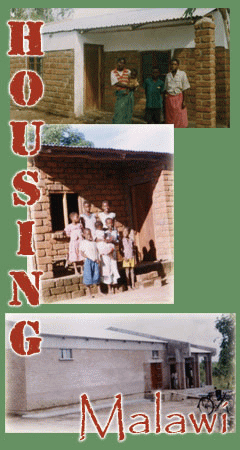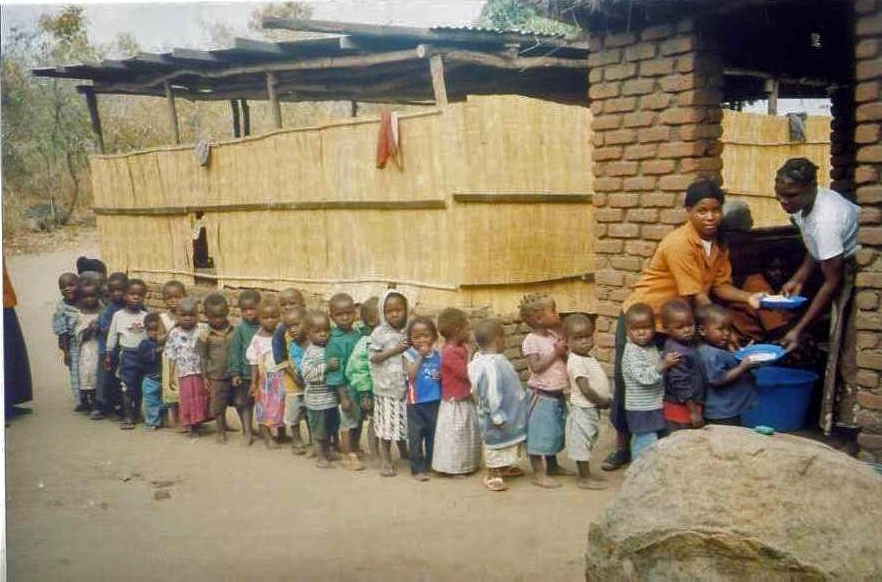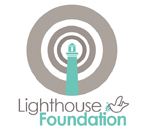
|
Blantyre North Relief Project
From only five orphans in 1985 to 700 in 2005 (in the ’90s there was an explosion of orphans” due to the AIDS epidemic
in Africa).
The Sindima family has been supporting orphans in many ways: food, clothing,
blankets, shelter (building brick homes), school uniforms and materials,
tuition and fees for high school, vocational training, and college.
About the Blantyre North Relief Project
Sindima Memorial Institute of
Arts and Technology
Now our family is building a school for 2,500 students to train in various
skills, careers, and professions: accounting, architecture, business management,
computer system technology, engineering, graphics, nursing, medicine, automotive
technology,woodwork technology, among other programs.
They work throughout the local communities and the Presbytery to elicited the support for the projects.
Read more about this project, Harvey and his wife, Gertrude.
BNRP / Sindima Memorial Institute of Arts and Technology Flyer
|
|
|
Missions: Hard at Work and Working
Rev. Dr. Harvey J. Sindima
Hamilton, NY USA — Malawi, Africa |
| Thank you in advance for supporting my family's efforts to make a difference
in the life of orphans: to give them joy, hope, security so that they can
smile. The smile of a child is priceless.
Now, may the One who "by the power at work within us is able to accomplish far much more than we all can ask or imagine," bless you exceedingly, now and throughout the year; and to God "be glory in the Church and in Christ Jesus in all generations" (Ephesians 3:20).
|
MediaGlobal Interview (December 2009) : View PDF File
Caring for Malawi's orphans to build a more sustainable future:
An interview with Dr. Harvey Sindima, founder of The Blantyre North Relief
Project
By Henoch Derbew
http://www.mediaglobal.org
|
(select pictures to enlarge)
Overview of Programs
Homes For Orphans: BNRP continues to provide orphans with much need housing.



Children need to grow with the cultural values of their people, to experience
how the social structure and organization of their people function. Institutions
do not simulate living within the network of relations or the fabric of
communitarian life of African society. Without the knowledge of cultural
and social values, people are without roots, history, above all without
identity. BNRP is guided by Malawian philosophy of umunthu, or personhood—a
complete socio-cultural and spiritual person.
Children Receive Daily Care: BNRP under-five children are healthy and active because of daily
nutritious and balanced meals, physical and mental education, and monthly
medical check-ups by a public health officer.
   
Health Development: Once a month, Public Health officials come for updates on immunizations
and to check on other health related issues. All our children are at or
above their weight gain according to their age and height.
The death of an area child from malaria in 2007, prompted BNRP to acquire and distribute mosquito nets to all of the area children. Blankets were also distributed at this time to children in need.
BNRP thanks God that due to its malaria anti-prevention program no child has been lost.
Intellectual Development: The children are taught reading and math. They are divided into
three age-groups: two pre-kindergarten 2-3, 4-5, and kindergarten 6. Our
children were already doing much better, reading above their age group
and sometimes well above their grade level. To strengthen our teaching
and teaching staff, one certified first grade teacher was hired in January.
We have been using all Malawian instruction materials in our teaching,
but we added Hooked on Phonics in May. All the children love Hooked on
Phonics because they were already being instructed in English and they
all knew their ABCs extremely well.
   
BNRP is bridging the digital-divide. BNRP is perhaps the first in Malawi
to use computer-based learning for children under five. The of use computer-based
language and math programs for our children under-five has increased their
interest, enthusiasm, and knowledge tremendously. BNRP under-five children
read at least two grades above their level. Their spelling and speaking
of both the national language, Chichewa and English are very impressive.
Their math skills are two grades higher.
Physical Development: The children play a lot of team games. More than half of their
day at the feeding center the children is spent collaborative playing,
thus encouraging the traditional sense family.
Spiritual Development: The Feeding center teaches spiritual matters through what we call
“Choruses” in Malawi. These are short songs based on verses from the Bible.
| The Feeding Center: November 2007, I set out to visit our orphans village by village, from
home to home. I was also bringing them food and clothing too. While I was
on this visit, I was deeply sadden to find children in the area very thin
because lack of food. Most of those children looked like they would not
make it; that they would die if they did not get food within a short time.
These were not our orphans, but children of young mothers, most of them
widows, or of very poor parents. I was so disturbed by what I saw that
I came back to my home hoping to talk to my brother to see what we could
do. When he called, I told what I had seen and how sad I was. I told him
that we needed to do something right away, if we didn’t want to be ashamed
before God. I told him that it was a priority for us. Of course, his concern
was money, given the many other things we are doing. We both felt we did
not have a choice, but to engage in this work. Within days we were ready
to begin saving lives. We started with 100 children ages 1–5, serving breakfast
around 9:00 and lunch around 2:00. Within one month, only 2 children were
borderline, but every child weighed within normal range. |
BNRP currently has over 100 children enrolled in its feeding program. Children are feed breakfast, Lunch and have a “little” meal before they are picked up by their mothers or guardians late afternoon. This center has also provided us with the ability to help the children with all other aspects of their development. |

|
   
Safe Water / Well Project: Since February 2008, BNRP had wells sunk in the different villages.
These wells have relieved women and girls from walking more than a mile
each way to fetch water from one of the wells BNRP sank a several years
ago.




Before the new wells, women and girls walked the long distance with five
to six-gallon buckets on their heads, several times a day for cooking,
cleaning/washing, and bathing. The women would start fetching water as
early 5 a.m. and some even earlier. This safe water project was made possible
by funds from the Patnership Committee of Cayuga-Syracuse Presbytery, New
York, working together with the Partnership Committee of the Pyongyang
Presbytery of the Presbyterian Church of South Korea.
BNRP will continue sinking wells as is able, or as donors are found. Contibute to the BNRP safe water project to help the women of Malawi from walking long distance for water.
The Farm: The irrigation farm has proved to be really useful, giving us three yields per year.
We are growing mostly corn and different kinds of greens to feed children in the BNRP program including the feeding center.
We continue to increase the acreage, but our output is still very little because of the traditional methods of farming we are using.
BNRP built a 30-meter barn for ten milk cows and twenty for beef. Four farm workers will have their houses near the barn.



 Annual Corn & Fertilezer Distribution:
Annual Corn & Fertilezer Distribution: Each year BNRP distributes corn seed and fertilizer to over 200
families (mostly orphans and elderly). It is a tradition that children must have their small plot of land, or a garden to learn how to farm. While
BNRP gives out food to orphans, it also gives them seed and fertilizer for them to learn the importance of farming.




Medical Center: Due to the depressing fact that there is not a single a health facility
of any kind in one of the areas of BNRP operation, BNRP has started making
bricks to build a very small, but comprehensive medical facility that will
include: ten-bed wards for children, general female, and male patients.
There will be a 10-bed maternity ward, with a four-bed delivery room. Surgery
will have a four-bed recovery room and all necessary rooms. Surgery will
be performed for most medical problems except the more complex ones such
as cancer. Construction of the medical facility will begin this fall and
we anticipate completion in the summer or fall next year, God willing.
New Partnership Ensures Continued Malaria Prevention
Malaria
Eradication Project: For the past three years BNRP
has been providing children under five mosquito nets for protection against
malaria. The Lighthouse Foundation Korea on and BNRP applied for a malaria
eradication grant from KOICA. The project will provide long-lasting (five
years) mosquito nets, inside residual spraying, antimalarial prevention and
treatment medicines, and Intermittent Preventive Treatment for pregnant women
(IPT) and for Infants (SP IPTi). BNRP hired and trained 50 malaria monitors to
work under the supervision of two doctors and two nurses, one midwife who are
all helped by two laboratory technicians. LHF is working closely with BNRP in
implementing the project. A LHF staff, Mr. Ki Doo Kim, is already in Malawi
working with BNRP staff in implementing the malaria project.
 |
BNRP signed a 3-year Memorandum of Agreement
with the Lighthouse Foundation (LHF) of Korea on 3 February, 2010, to implement
a Korea-Malawi technical cooperation for health care services and other welfare
enhancement programmes in Blantyre north. |
New Ambulance: This ambulance was Donated by the people and the government of Republic of Korea (South Korea) through the Lighthouse Foundation (South Korea), a BNRP Partner. The ambulance will help malaria health workers bring the seriously sick to BNRP's clinic in a timely manner for treatment.
Korea International Cooperation Agency (KOICA)
KOICA, an agency of the
Republic of Korea Ministry of External Affairs and Trade, on 15 June, 2010,
made a grant of $750,000 to Lighthouse Foundation and BNRP to eradicate malaria
in Blantyre north. The project will provide protection to the most vulnerable
populations to malaria attacks and death, 90,000 children under-five and
pregnant women. The project will reach a further 200,000 people through indoor
residual spraying.
The
Benton Foundation
The Daniel C. Benton
Foundation joined the malaria eradication project with a donation to BNRP for
the wages of 50 malaria monitors. These trained young men and women are very
critical to the success of the project. They perform the following duties:
- Visit every home in their assigned coverage area to conduct malaria clinical assessment and rapid diagnostic testing every individual for malaria parasites.
- Distribute antimalarial treatment prevention drugs, insecticide-treated
mosquito nets
- Conduct malaria education, counseling, and prevention.
- Conduct indoor residential spraying of every home in the coverage area
- Collect data on malaria and maintain vigilance on malaria surveillance.
(Photos of Malaria Monitors)
Malawi has universal primary education, but by fifth grade nearly half
of all school children drop out for lack of school materials, clothing,
food, and parental support due deaths from HIV/AIDS. Secondary education
is for non-poor children and less than half of those finish school.
We pay fees and tuition for orphans to attend secondary, technical, and college education. We
also provide a variety of support the orphans through our many programs
so they can continue their education.
On June 15, 2005 the Malawi Secretary of Education approved and granted
BNRP permission to build a university. The Sindima Memorial Institute of Arts and Technology: The Institute (an Arts and Sciences university for orphans and the poor
in Southern Africa) is now under construction. The buildings will have
classrooms, labs: biology, chemistry, dental, nursing, optics, physics,
physical therapy, radiology, surgical, Computer labs, lecture halls and lounge areas.
The Institute will have 6 academic divisions:
secondary education, colleges of arts and humanities, commerce, communication,
science and technology, and allied health sciences. The flagship division of
the Institute will be the allied health professional programs which alone will
offer 25 degrees including 6 masters degrees and 5 doctorates in medicine,
pharmacy, dentistry, optometry, and nursing education and science. A minimum of
40% of the student body will be female.
Visit our new website at http://sindimainstitute.ac.mw/
  
 
   
|
|
|
We continue to strive forward.
|
|
BNRP thanks God for blessing us with visions. We thank God for faith and
hope that make us believe that whatever vision the Spirit shows us will
be accomplished. We have no doubts that all plans will come to pass. We
marvel at how much we are led. So we say with the Pslamist:
“This is the Lord’s doing; it is marvelous in our eyes”. (Psalm 118:23)
|
|






















































